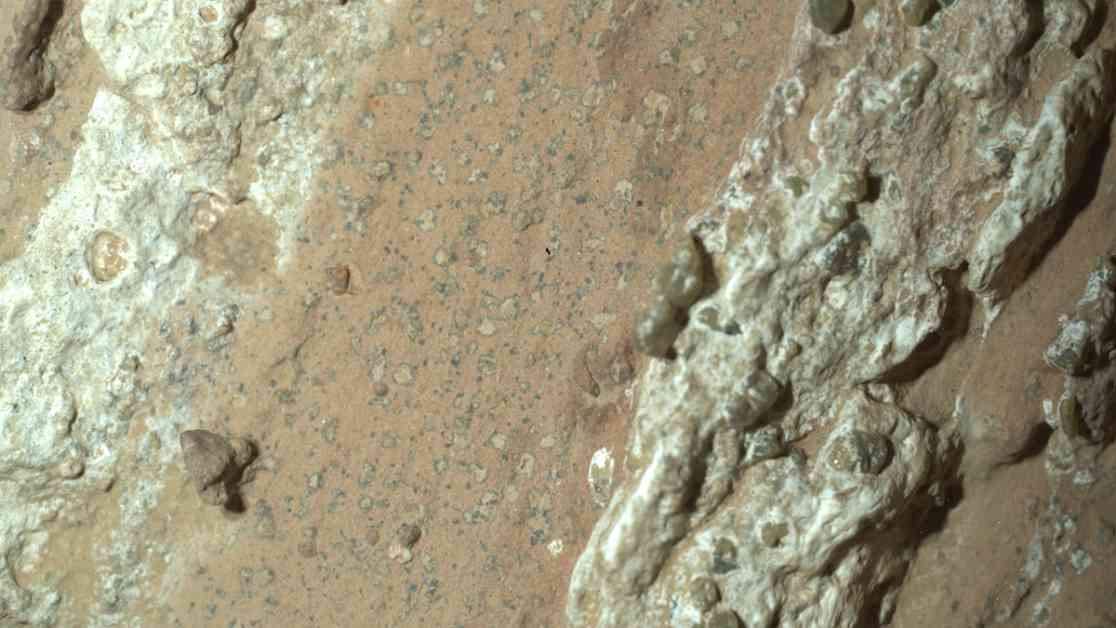NASA’s Perseverance rover has made a remarkable discovery on Mars that has scientists buzzing with excitement. The rock, named Cheyava Falls, shows promising signs that it may have once been home to ancient microbial life. While further analysis is needed to confirm these findings, the rover’s instruments have detected chemical compositions and structures that suggest the presence of organic compounds and mineral deposits that are typically associated with life.
The rock, which resembles an arrowhead, contains veins of calcium sulfate and millimeter-sized splotches surrounded by black rings, resembling leopard spots. These features are intriguing to scientists as they bear similarities to formations on Earth that are linked to microbial activity. The discovery of these elements together on Mars is unprecedented and opens up new possibilities for understanding the planet’s ancient history.
Cheyava Falls is located at the edge of an ancient river valley named Neretva Vallis, indicating that water may have played a significant role in shaping the region. Scientists believe that the rock’s unique features may have been formed through a combination of organic compounds being deposited in the valley and later modified by additional water flow. While the evidence is compelling, it is not conclusive proof of past life on Mars, and further investigation is required.
To gain a deeper understanding of the rock and its implications, researchers are eager to bring samples back to Earth for more detailed analysis. However, the Mars Sample Return mission, which aims to retrieve these samples, has faced challenges due to its high costs. Despite these obstacles, NASA continues to explore alternative solutions to ensure the safe return of Martian samples for study.
The discovery of Cheyava Falls has reignited interest in the search for ancient life on Mars and underscores the importance of continued exploration of the Red Planet. As scientists delve deeper into the mysteries of Mars, new revelations and insights are sure to follow, shedding light on the planet’s past and its potential for harboring life.
In conclusion, the Perseverance rover’s findings on Mars have sparked excitement and curiosity within the scientific community, paving the way for future discoveries and advancements in our understanding of the planet’s history. As research continues, we can expect to uncover more clues about the possibility of ancient life on Mars and the potential for human exploration in the years to come.












